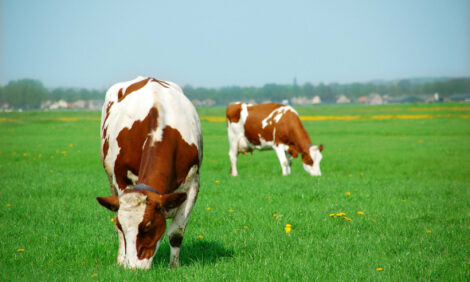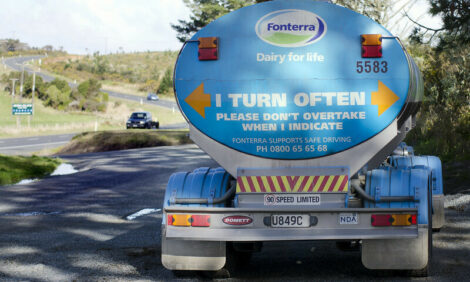



Beef Producers Urged To Reduce Difficult Calvings
UK - Beef producers at AgriScot today (Wednesday 17th November) were urged to take advantage of Estimated Breeding Values (EBVs) calving ease information given the “horrendous” financial and workload implications of difficult calvings.Highlighting the reduced labour available on modern livestock farms, Quality Meat Scotland’s Livestock Development Manager, Kathy Peebles, said it was now imperative the industry takes calving ease EBVs on board.
“Progressive commercial producers should not even consider looking at a bull which does not have positive values for calving ease,” said Ms Peebles.
And leading beef adviser, Basil Lowman, said while most progressive commercial and pedigree cattle breeders now look at the calving ease EBV when they are purchasing a bull, so far only a few understand the importance of taking into account Maternal Calving Ease EBV which is now available.
Dr Lowman said the industry had been slow to appreciate the importance of female pelvic conformation in calving ease and, with the assistance of 20 Oatridge College students, gave a demonstration highlighting the shape and angle of the pelvis as a crucial factor.
He also pointed out that while topping the trade for calves might appear very attractive, the fact is that selling the highest value calves does not equate to making money if those farmers are also incurring the financial penalty of difficult calvings.
Dr Lowman’s key message during an entertaining main ring performance was that calving difficulty boils down to two factors – the calf itself and the cow’s pelvis conformation.
“A typical caesarean will cost producers £500-£600 – taking into account the vet bill, potential loss of calf and/or cow and reduced potential of the cow getting back in calf again. In fact for every caesarean a cow’s productive life is halved.
“On top of that a calf born as a result of a difficult calving is four times more likely to die than one born unassisted.
“And there is also the sheer hassle factor of the additional workload as a result of calving problems – from bottle feeding to individual penning. Frankly the impact on labour is one we can no longer afford in our industry,” said Dr Lowman.
These difficulties were compounded by the reduction in numbers of large animal vets and the time and cost implications of vets having to travel great distances or tackle heavy traffic to get to farm clients.
The QMS demonstration at AgriScot kicked off a programme of activity which will take place in the months ahead to assist producers to effectively use EBVs to reduce calving difficulties.
Two “Understanding EBVs” workshops will be held in January when QMS will be launching a “Commercial Bull Buyers’ Guide”, ahead of the spring bull sales.
TheCattleSite News Desk


